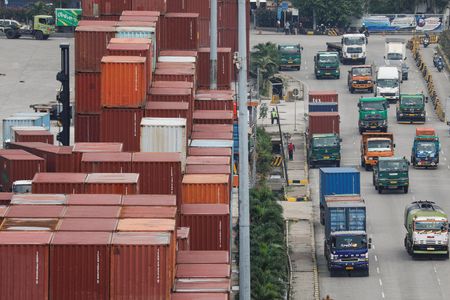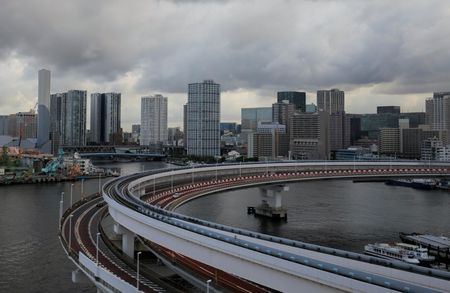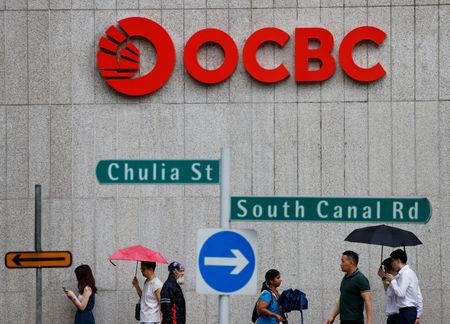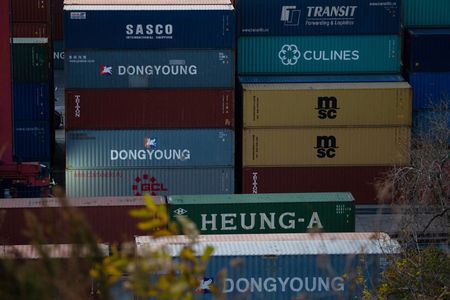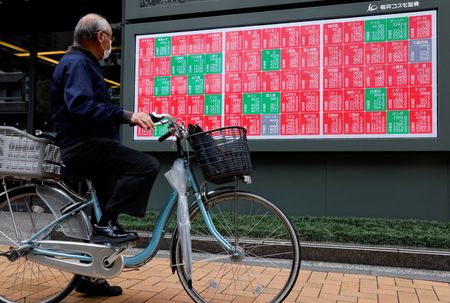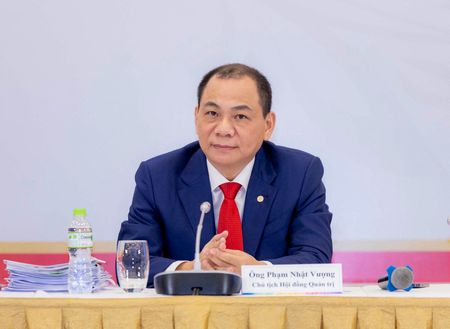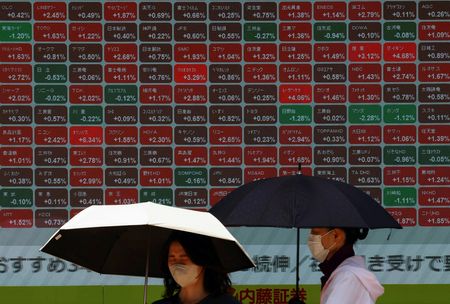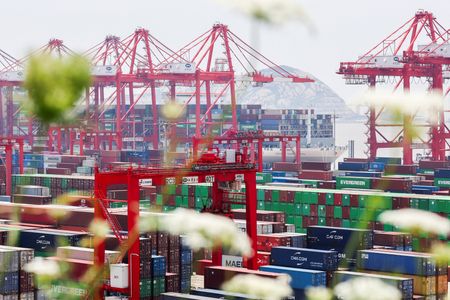By Stefanno Sulaiman
JAKARTA (Reuters) -Indonesia will exempt oil and gas exporters from its new rule that all proceeds from natural resource exports be kept onshore for a year, as companies urge adjustments to the rule out of concern over its impact on their cashflows.
On Tuesday, Jakarta said the new rule would take effect on March 1 and apply to every export with a shipping document worth at least $250,000.
Currently, exporters are only obliged to retain 30% of total proceeds for a minimum of three months, which has already pushed up interest expenses for some exporters.
Jakarta said the move is needed to shore up U.S. dollar supply in the largest economy in Southeast Asia, helping its efforts to stabilise rupiah, which hit a 6-month low in January.
Oil and gas exporters will be exempted from the new policy due to the nature of their business, Susiwijono Moegiarso, an official at Coordinating Ministry of Economic Affairs, told reporters on Wednesday.
The Association of Oil and Gas Companies has asked for a gradual implementation of the rule due to its potentially “extraordinary” impact on cashflow for their operational costs, Moshe Rizal, the head of the group’s investment committee, said earlier on Wednesday.
It was unclear whether they will still be required to fulfill the current 30% retention rule.
Susiwijono said the government will speak with companies later this week to get their feedback and discuss incentives.
To tackle the working capital issue, the government has said that earnings could be used as collateral for a loan, which industry groups said is still unfavorable as companies must bear the loan interest, adding to their expenses.
Under the current 30% retention rule, the local cocoa industry has been paying up to a 6% interest rate gap as they are forced to take loans at market rates while domestic deposits earn lower returns, the Indonesian Employers Association (Apindo) said in its statement late on Tuesday.
Of all exporters, cocoa and fishery businesses are among the most impacted by the current rule, according to Apindo, and the group urged the government to consider applying the new 100% rule selectively, not across the board.
“Our input and concerns have been received by the government so we are asking for more detailed explanation of the latest government position,” Apindo Chairwoman Shinta Kamdani told Reuters on Wednesday.
In support of the rule, Indonesia’s central bank has said it will continue to offer term deposit instruments with a competitive return and to provide its FX-denominated securities as an alternative for the proceeds placement.
(Reporting by Stefanno Sulaiman; Additional reporting by Fransiska Nangoy; Editing by Kim Coghill and Hugh Lawson)

